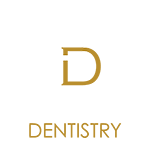Periodontal (gum) diseases, including gingivitis and periodontitis, are serious infections that, left untreated, can lead to tooth loss. The word periodontal literally means “around the tooth.” Periodontal disease is a chronic bacterial infection that affects the gums and bone supporting the teeth. Periodontal disease can affect one tooth or many teeth. It begins when the bacteria in plaque (the sticky, colorless film that constantly forms on your teeth) causes the gums to become inflamed.
Gingivitis is the mildest form of periodontal disease. It causes the gums to become red, swollen, and bleed easily. There is usually little or no discomfort at this stage. Gingivitis is often caused by inadequate oral hygiene. Gingivitis is reversible with professional treatment and good oral home care.
Untreated gingivitis can advance to periodontitis. With time, plaque can spread and grow below the gum line. Toxins produced by the bacteria in plaque irritate the gums. The toxins stimulate a chronic inflammatory response in which the body in essence turns on itself, and the tissues and bone that support the teeth are broken down and destroyed. Gums separate from the teeth, forming pockets (spaces between the teeth and gums) that become infected. As the disease progresses, the pockets deepen and more gum tissue and bone are destroyed. Often, this destructive process has very mild symptoms. Eventually, teeth can become loose and may have to be removed.
How do you treat peridontal disease?
Regular brushing, flossing and a healthy diet are the best ways to avoid gum disease along with your regular visits to Burgmeier Dentistry. However, if you have periodontitis, advanced treatment will be required including Perio Therapy.
Periodontal Therapy (deep scaling and root planing) works by using a laser to thoroughly remove all calculus (tartar), bacteria and toxins from your teeth and gums. It may be done in one appointment or split up into several sessions. The length of time depends on the severity of your condition.
After treatment, your teeth may be slightly sensitive to hot or cold. However, your mouth should feel better immediately. The surface of your teeth will be nice and smooth, your smile will be whiter, and periodontitis-related bad breath will be gone.
Periodontal Therapy is not a cure. You will still have to control your periodontal disease through good home care and regular follow-up visits. Medication and antibacterial mouthwash may also be prescribed. In addition, you may be advised to get genetic testing to determine the best course of action for your dental health.

CONTACT US DIRECTLY
Burgmeier Dentistry
Phone: (641) 423-0064
Fax: (641) 421-7544
Email: smile@burgmeierdentistry.com